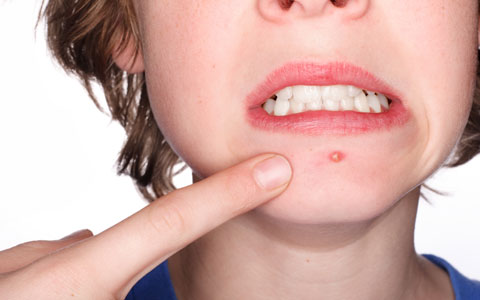What are the different Types of Warts & Causes of Warts
Warts are growths that appear on different parts of your body and vary in shape, size, and color.
Types
They are broadly classified into five different types. These include:
- Common warts
Found mainly on your fingers and toes, these warts may appear in other parts of your body as well. With a rough, grainy appearance and a rounded top, these warts are usually gray in color. - Plantar Warts
Plantar warts grow into the skin that covers the soles of your feet, rather than growing out of it. A small hole in the bottom of your foot which is surrounded by hardened skin indicates the growth of a plantar wart. They are an indication of HPV which is why you should get tested if you have this wart. - Flat warts
Found on the face, thighs, or arms, these are tiny growths that are flat on the top. They are pink, brown, or slightly yellow in colour. - Filiform Warts
These grow on and around the mouth, nose, neck or on the area below your chin. They are small tags that are coloured the same way as your skin is. - Periungual warts
Found under and around your toenails and fingernails, these can be painful and affect healthy nail growth. Range of Risk
While anyone can develop warts, it is more likely to affect:
- Children and teenagers
- Individuals with weakened immune systems
- Individuals who have had warts before
- Individuals who walk barefoot which enables wart-causing viruses to enter their body
Causes Of Dangerous Plantar Warts
- The HPV enters the body via the outer layer of one’s skin, usually through cuts, slits or cracks present in the soles of your feet.
- HPV is common and there exist over 100 strings of this virus, out of which only a cause for the growth of these moles. Other types of HPV cause warts on other areas or on mucous membranes.
- While each person’s immune system responds differently to HPV, it is not necessary for everyone who comes in contact with it to develop warts.
- The HPV strains that cause plantar warts are not highly contagious, so the virus is not easily transmitted by direct contact.
- Warm, moist environments provide a safe haven for this virus. Walking barefoot in areas such as swimming pools or locker rooms are usually the case

Precautionary Measures
- Do not pick at the wart
- Do not share towels, socks or gloves with others
- Do not walk in public spaces without your shoes on
- Exfoliate regularly
- Use sunscreen